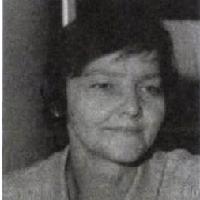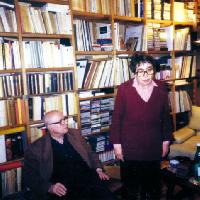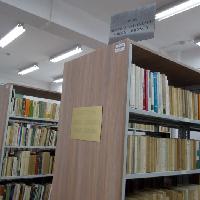The collection of Ilona Liskó is the legacy of the oeuvre of a sociologist who tried to shed light on the problems in Hungarian society which, according to the official stance of the regime, did not exist. Liskó felt a sense of solidarity with the poor and marginalized in part thanks to her family upbringing, and her desire to shed light on their sufferings came from her deep sense of social obligation.
-
Vieta:
-
Budapest Arany János utca 32, Hungary 1051
-
Temos:
-
Įkūrimo data:
-
Charakteringi eksponatai:
Ljubomir Tadić was a professor of philosophy, academic, and politically active intellectual over many decades. During the socialist period in Yugoslavia he was a prominent opposition figure and critically minded intellectual who struggled against the Yugoslav system. Ljubomir Tadić’s collection is located in the Archives of Yugoslavia in Belgrade.
-
Vieta:
-
Beograd Vase Pelagića 33, Serbia
-
Temos:
-
Įkūrimo data:
-
Charakteringi eksponatai:
The Lovinescu–Ierunca Collection at the Central National Historical Archives (ANIC) in Bucharest is arguably the most important collection created by the Romanian Diaspora in Paris. The collection illustrates not only Monica Lovinescu and Virgil Ierunca’s interest in the subject of dissent in Romania but also how their activity at Radio Free Europe (RFE) created a transnational network of support for those who decided to speak against the regime.
-
Vieta:
-
București Bulevardul Regina Elisabeta 49, Romania
-
Temos:
-
Įkūrimo data:
-
Charakteringi eksponatai:
The collection is illustrative for the documentation work that lay behind the broadcasting activities of two prominent members of the Romanian exile community in Paris who worked with Radio Free Europe (RFE), Monica Lovinescu and Virgil Ierunca. Their programmes focused mainly on presenting the cases of dissidents in the then Soviet Bloc. The need to understand the dissidence phenomenon and the main ideas behind its criticism of the communist regimes required diverse readings from different subject areas. Thus, the Monica Lovinescu and Virgil Ierunca Collection in Oradea testifies to the interest of its creators in subjects relating more or less to cultural opposition in the fields of literature, philosophy, sociology, history, art, and religion.
-
Vieta:
-
Oradea Strada Universității 1, Romania
-
Temos:
-
Įkūrimo data:
-
Charakteringi eksponatai:
Lydia Sklevicky's Feminist Collection at the Institute of Ethnology and Folklore Research in Zagreb consists of a newspaper and periodicals collection, documentation and a library that testify to Sklevicky’s professional work and interests, primarily related to feminism and the issues of women's rights in Yugoslavia and the world. Sklevicky was one of the protagonists of the late 1970s and 1980s who put women's issues in focus and criticized the unenviable position of women in Yugoslavia, particularly by pointing out the discrepancy between their contribution in World War II and their prominent role in the post-war period on the one hand, and their re-marginalization since the mid-1950s on the other.
-
Vieta:
-
Zagreb Šubićeva ulica 42, Croatia 10000
-
Temos:
-
Įkūrimo data:
-
Charakteringi eksponatai:





